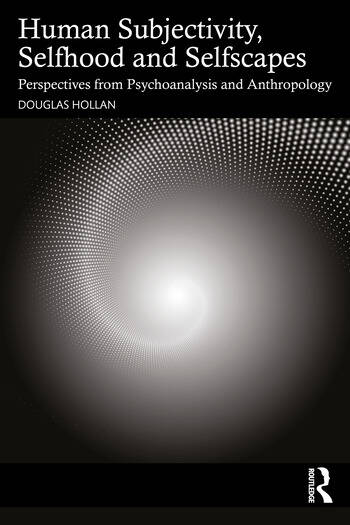Selfscapes, Selfhoods, and Subjectivities: Perspectives from Psychoanalysis and Anthropology

Book Details
- Publisher : Routledge
- Published : 2025
- Cover : Paperback
- Pages : 172
- Category :
Psychoanalysis - Catalogue No : 98209
- ISBN 13 : 9781032867748
- ISBN 10 : 1032867744
Reviews and Endorsements
For more than three decades, Douglas Hollan has made vital contributions to our understanding of the self in cultural context. His work is characterized by ethnographic engagement with the social world, psychodynamic attunement to the self, and a humanistic commitment to respect the complexity of experience. Hollan is a master of person-centered ethnography and in this collection of seminal essays, he shows how attention to both the social world and to psychological dynamics can reveal the person as an active agent fashioning a durable and generative self. Building on his ethnographic and clinical experience, he uses the concept of selfscape to articulate and explore the looping effects between self-constitution and cultural affordances. This work will be enlivening, enriching, and sustaining for scholars in the social sciences and humanities and for mental health practitioners who seek to better understand the interplay of psyche and culture.
Laurence J. Kirmayer, Distinguished James McGill Professor & Director, Division of Social & Transcultural Psychiatry, McGill University
Douglas Hollan, a leading contemporary voice in psychoanalytic anthropology and person-centered ethnography, has written a book that is urgently needed in anthropology, psychology, and all fields that study persons-in-culture. He offers an approach that successfully navigates the Scylla of psychological reductionism on one side, and the Charybdis of cultural and structural reductionism, on the other. Psychologists and psychoanalysts typically focus on the individual’s intrapsychic, interpersonal, and neurobiological characteristics while downplaying the social-structural, cultural, political-economic, and material contexts that are just as influential in shaping the self. Many social theorists and researchers have tried to rectify this lack of attention to context by emphasizing the social and cultural formation of the person. But in doing so, they go too far in the opposite direction: They neglect the complexity and singularity of human mental life as well as the active, dynamic nature of human subjectivity. Prof. Hollan has long recognized that the study of persons must move beyond these bifurcations. Here, he presents a more integrative approach, one that illuminates individual human experience in its complexity and particularity, as well as its formation within sociopolitical and cultural contexts. Many social and psychological researchers are seeking ways to theorize and study the whole person, and they will find this book to be both useful and inspiring.
Suzanne R. Kirschner, Professor Emerita of Psychology College of the Holy Cross
Douglas Hollans’ unique immersion as both Anthropologist and Psychoanalyst resulted in a career-long engagement with human subjectivity. In this volume of his essays, he shares his profound and useful insights about person-centered ethnography and the multiple sources, in addition to early childhood experiences, of self construction: selfscapes. Hollan offers us a rich and nuanced new methodology of the mind—one important both to anthropological researchers and to mental health practitioners. A critical contribution for both.
Jeffrey Prager, Ph.D, Research Professor of Sociology, UCLA, Training and Supervising Analyst, New Center for Psychoanalysis, ICP
At least since the early 20th century, anthropologists have drawn upon Freud, and Freud turned to anthropology, in one of the most fruitful cross-disciplinary dialogues either field has engaged. In his insightful, elegantly written and deeply absorbing Selfscapes, Selfhoods, and Subjectivities, anthropologist and psychoanalyst Douglas Hollan exemplifies and further entwines these disciplines. He gives us a beautifully fine-tuned account of the ways that individual selves experience and act within and thereby create environments, describing how this ever-creative interactive process works in human life and giving us vivid, on-the-ground examples of individuals. Scholars and clinicians from these two fields and from the social sciencies and clinical practices more broadly, as well as anyone who is interested in their own subjectivity in its relation to their own social being, will delight in and gain enormous understanding from reading this book.
Nancy J. Chodorow, Professor Emerita, Department of Sociology, University of California, Berkeley, author of The Psychoanalytic Ear and the Sociological Eye

